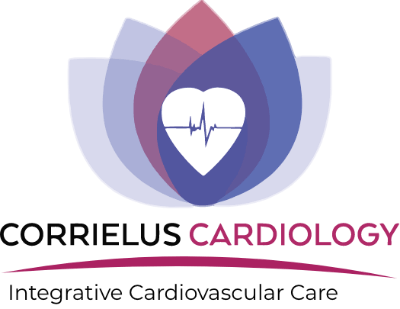Mitral valve prolapse (MVP) is a common heart valve disease that occurs when the flaps of the mitral valve bulge, or "prolapse," into the left atrium during heart contraction. This condition can lead to a leakage of blood, known as mitral valve regurgitation.
Although not typically life-threatening, severe cases may necessitate treatment such as medication or surgery.
At Corrielus Cardiology, we are dedicated to taking care of both your heart health and your overall well-being. In doing so, we provide top-quality care when it comes to detecting mitral valve prolapse and other heart conditions.
Dr. Corrielus is a leading Philadelphia cardiologist who takes pride in serving his community and providing them with exceptional care.
The job of the mitral valve is to control the blood flow from your left atrium to the left ventricle of the heart. In MVP, this valve's flaps do not fit and close properly between heartbeats, leading to potential blood leakage back into the left atrium, a condition known as mitral valve regurgitation.
Symptoms related to MVP can vary depending on the severity of the prolapse and may include:
- Irregular heartbeat, also known as cardiac arrhythmia
- Dizziness or feeling lightheaded
- Shortness of breath during exercise
- Shortness of breath when lying down
- Fatigue or feeling extremely tired after physical exertion
- Chest pain not caused by a heart attack or coronary artery disease.
The cause of MVP remains largely unknown. However, it is considered a lifelong disorder affecting around 3% of the population. This condition impacts women at twice the rate that it does men, and the condition can develop at any age.
Certain conditions, including Marfan syndrome, Ehlers-Danlos syndrome, Ebstein anomaly, muscular dystrophy, Graves’ disease, and scoliosis, may be linked to MVP.
MVP is often detected during a routine examination by a healthcare provider. The doctor may hear a click or heart murmur (abnormal sounds during the heartbeat) while examining your heart.
The clicking sound is caused by stretched valve flaps "snapping" against each other. The murmur is the sound of blood leaking back into your left atrium.
To diagnose MVP, your doctor may order additional testing such as:
- Transthoracic echocardiogram (TTE): This test uses ultrasound sound wave technology to create images of your heart.
- Electrocardiogram (ECG or EKG): This test records the heart’s electrical signals.
- Chest X-ray: This imaging technique helps diagnose conditions affecting the chest.
- Stress test: This test assesses how your heart works during increasingly difficult physical activity.
While many people with MVP can live a normal life without disruption from symptoms, certain lifestyle choices should be avoided to prevent the condition from worsening, including:
- Smoking
- Unhealthy diet and excessive weight
- Sedentary lifestyle (lack of exercise)
- Not maintaining follow-up care and physical exams with your doctor
- Neglecting management or treatment of other health conditions, especially those that can affect heart health or cause endocarditis.
MVP is usually not life-threatening. However, if the condition causes mitral regurgitation or disruptive symptoms, people with MVP may need to proceed with treatment.
If left untreated, severe mitral valve prolapse and regurgitation can force the heart to work harder to pump your blood, potentially leading to heart failure.
The treatment for MVP may include regular monitoring, medication, or surgery, depending on the severity. Only about 10 to 15 percent of people with MVP require mitral valve repair or replacement surgery.
Other treatment options may include controlling the heart rate, draining fluid from the lungs, and preventing blood clots to address uncomfortable symptoms like chest pain.
With the right medical attention and proactive healthcare management, individuals with MVP can lead an active, healthy life. Regular check-ups, a healthy lifestyle, and the correct treatment can help manage the condition effectively.
If you suspect you may have MVP or are experiencing any of the above symptoms, seek medical attention right away for your heart health.
The mitral valve plays a crucial role in your heart's function, and its prolapse can significantly impact your health. At Corrielus Cardiology, we recognize the severity of mitral valve prolapse and the importance of early diagnosis and proficient treatment.
Our holistic approach to cardiovascular health focuses on your overall wellness and quality of life.
To schedule your cardiology consultation, call Corrielus Cardiology at 215-383-5900 or book an appointment online. Your heart deserves the best care, and we're here to provide it.



